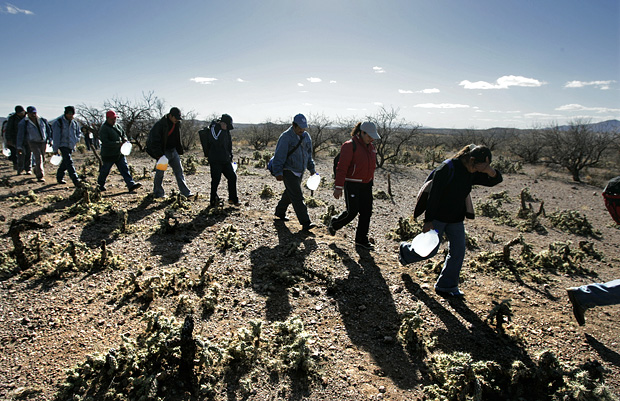
A tale of two migrant flows
The New York Times Editorial Board
The Obama administration last week announced a series of modest, but sensible, steps to respond more humanely to the influx of migrants from Central America.
The most significant is an expansion of a program designed to allow children who are in danger in El Salvador, Honduras and Guatemala to apply for refugee status from their home countries if they have a parent living legally in the United States. Under the new rules, those who are granted that status will be allowed to immigrate to the United States with unmarried siblings who are over 21 and a related caregiver, such as a grandparent.
The administration also said that Costa Rica had agreed to serve as a temporary home for up to 200 refugees who face imminent danger while their cases are being processed.
Those changes will affect only a tiny fraction of the tens of thousands of people who have been embarking on dangerous journeys to the United States in recent years, fleeing violence and poverty. During the first eight months of this fiscal year, more than 120,700 people from El Salvador, Guatemala and Honduras were apprehended along the Mexican border. Tens of thousands more were turned back by Mexican officials, who have been encouraged, and paid, by the United States to police its southern border more strictly. Broadening the criteria to allow people who don’t have parents in the United States a chance to apply for refugee status might help reduce the numbers streaming to the Mexico border.
Even as the administration tries to find new ways to address migration from Central America, it has been unwilling to change the old and misguided immigration policy for Cubans, who are leaving the island in increasing numbers. Cubans who reach American soil are generally allowed to stay permanently, based on a 1966 law and policies adopted during the 1990s.
So far this fiscal year, more than 44,300 Cubans have been admitted to the United States, surpassing the 40,115 who entered last year. While previous waves of Cuban migrants arrived primarily in rafts, most now arrive on foot across the Mexican border after paying thousands of dollars to human smugglers.
This has created burdens and expenses for countries along the route Cubans take, including Ecuador, Colombia, Panama, Costa Rica and Mexico. Leaders from those countries should encourage President Obama to rescind the current policy and admit only those people who can prove that they face persecution at home.
The blanket preferential treatment for Cubans, most of whom don’t face the dangers and harassment that entitle people to refugee status, is unjustifiable when Central Americans are fleeing far more desperate threats. In fact, some Cubans recently admitted to the United States already hold a second passport, and some even return to the island once they become permanent residents in America.
Obama administration officials have said that they’re reluctant to change the policy because that might set off a stampede as Cubans try to get into the United States just before a tighter policy takes effect. A stampede, however, is already well underway.
(From The New York Times)

